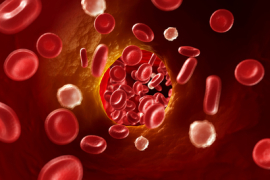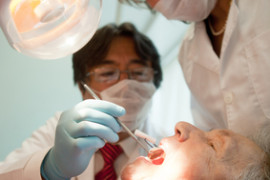Chronic oral bacterial infection may be a cause of oral cancer—specifically oral squamous cell carcinoma—according to a study published in the journal Oncotarget.
In this study, researchers found that periodontal pathogens P. gingivalis and F. nucleatum initiate the development of tumors by interacting with epithelial cells through Toll-like receptors. In addition, these pathogens appear to amplify the growth of oral cancer tumors.
The study authors are excited about the findings; citing it as a breakthrough in developing potential new targets for prevention and treatment of this deadly form of cancer.
“To the best of our knowledge, these findings represent the first demonstration of a mechanistic role for oral bacteria in chemically induced OSCC tumorigenesis. These results are highly relevant for the design of effective prevention and treatment strategies for OSCC.”
This is not the first time periodontal pathogens have been linked to cancer development. Just last year, P. gingivalis was implicated in the progression of oral cancer, and F. nucleatum is a known catalyst of colorectal cancer that has been shown to protect cancer cells from the immune system.
According to the Oral Cancer Foundation, approximately 90% of oral cancers are squamous cell carcinoma. Oral cancer is often deadly due to the fact that it is regularly diagnosed very late in its progression, so the fact that periodontal infection may be directly involved with the development and progression of tumor growth is highly significant. With 80% of the adult population having some form of periodontal disease and oral cancer rates on the rise, there is a large population of people who may be at an increased risk for oral cancer.
There are many lifestyle factors that can contribute to increased risk for oral cancer, but it appears that addressing oral pathogens may be an important component of mitigating risk.



